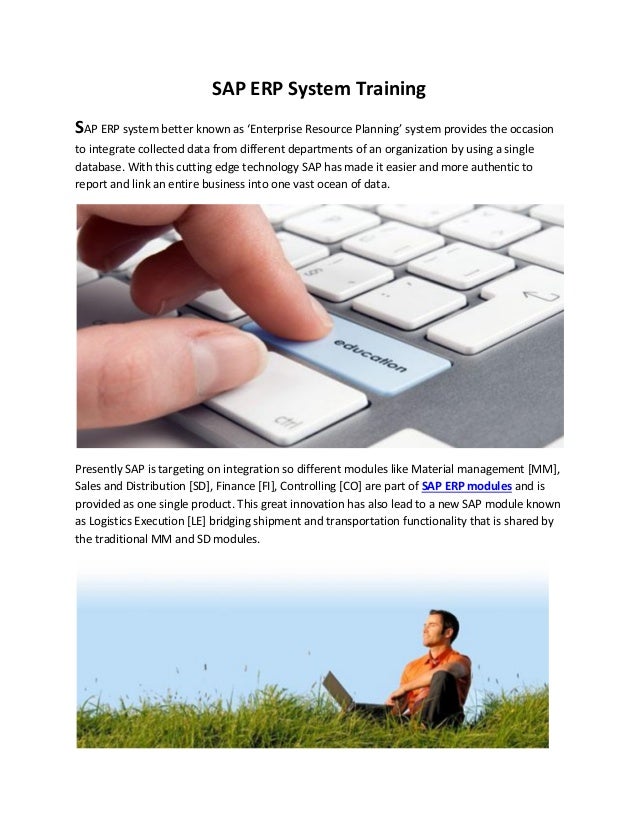System erp sap training slideshare
Today, I am excited to share with you some best practices for delivering ERP training. ERP, or Enterprise Resource Planning, is a software system that helps businesses manage their resources effectively. Whether you are new to the concept of ERP or just need a refresher, these tips will help you make the most of your training experience.
1. Set clear objectives
Before starting the training, it is essential to define clear objectives. What do you want to achieve with this training? Is it to learn the basic functionalities of ERP or to become an expert in a specific module? By setting clear objectives, you can tailor your training content accordingly and ensure that everyone understands what they will be able to accomplish after completing the training.

2. Engage learners
In order to make ERP training more engaging, it is important to involve learners actively. Instead of bombarding them with theoretical information, implement hands-on activities, real-life case studies, and interactive sessions. This helps participants understand how the ERP system works in practical scenarios and how it can benefit their day-to-day tasks.

3. Provide relevant examples
While explaining different ERP concepts, it is crucial to provide relevant examples that resonate with the learners. For instance, if you are discussing inventory management, use examples from their own industry or workplace. This makes the training more relatable and helps learners see how ERP can address their specific business challenges.
4. Break down complex topics
ERP training often involves complex topics and technical jargon. To ensure understanding, break down these topics into smaller, manageable sections. Start with the basics and gradually build upon the learners' knowledge. This step-by-step approach allows participants to grasp the concepts at their own pace without feeling overwhelmed.
5. Offer ongoing support
ERP systems can be complex, and learners may require support even after the training is completed. Make sure to provide ongoing support, whether through a dedicated helpline, online forums, or regular check-ins with trainers. This ensures that participants feel confident in using the ERP system and can reach out for assistance whenever needed.
I hope these best practices for delivering ERP training will help you in your learning journey. Remember, ERP training is not just about acquiring knowledge; it's about understanding how to leverage the system for maximum efficiency. By following these tips, you can ensure that your ERP training is not only informative but also practical and engaging.
Disclaimer: The information provided in this post is for educational purposes only and does not endorse any specific ERP software or training provider.